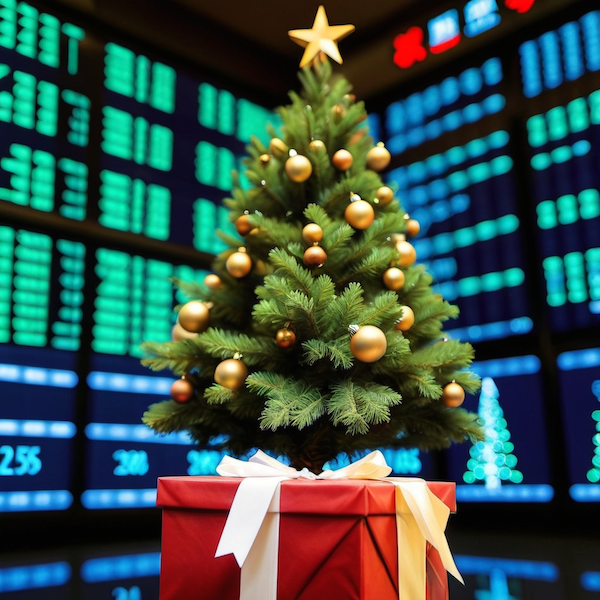How Holiday Trading Slowdown Affects Markets
- This topic has 0 replies, 1 voice, and was last updated 3 months ago by .
-
Topic
-
As Christmas approaches, financial markets are poised to enter a period of reduced activity, with trading volumes expected to thin out significantly.
This seasonal slowdown is a common phenomenon, as institutional investors, fund managers, and traders often take time off for the holidays, leading to quieter markets and less trading action.
What This Means For The Markets
While thinner trading volumes typically lead to less price movement, they can also result in increased volatility in certain instances.
With fewer market participants, even small trades can cause outsized price swings, especially in less liquid stocks or sectors. Investors should be mindful of these dynamics, particularly if they are engaging in short-term trading strategies.
Despite the anticipated slowdown, some key economic events and data releases could still influence the markets in the coming days.
Any unexpected geopolitical developments, changes in Federal Reserve policy outlook, or significant earnings reports could prompt sharper-than-expected reactions, even in a quieter trading environment.
Potential For A Late-Year Rally
Although reduced trading volumes are expected, the possibility of a “Santa Claus rally” remains.
This phenomenon, which refers to a seasonal boost in stock prices during the last five trading days of December and the first two days of January, often benefits from thin markets, as even modest buying activity can lead to noticeable gains.
Investor Takeaway
With Christmas around the corner, market participants should prepare for quieter trading sessions and reduced liquidity. However, they should also remain vigilant, as low volumes can occasionally amplify market reactions to news.
For long-term investors, this period provides an opportunity to step back, review portfolios, and plan for the year ahead, while traders may look to capitalise on any potential volatility or late-year rallies.
